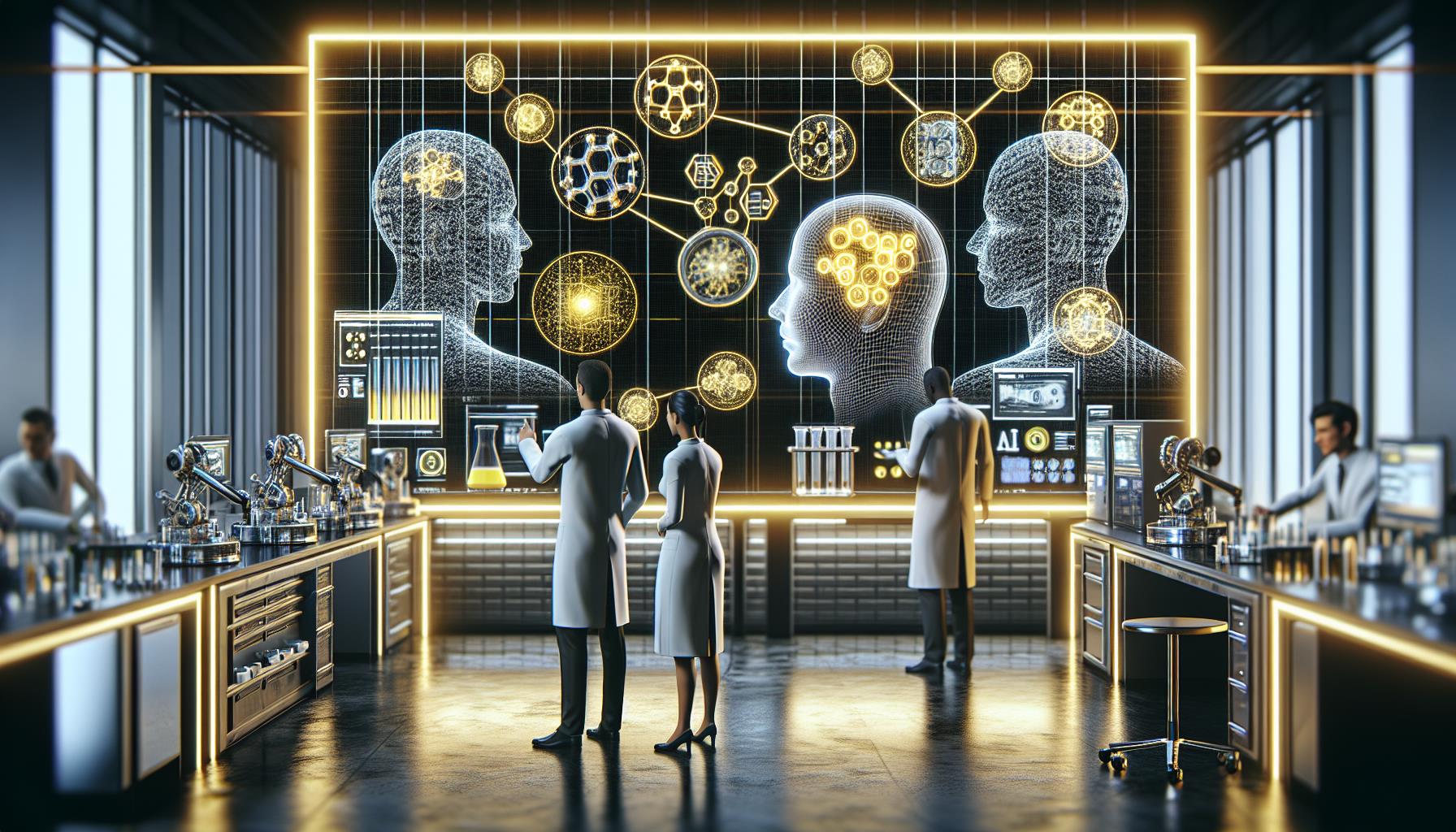Accelerating Drug Discovery with AI: A Leap Forward in Medicine
In an era where medical advancements are crucial for enhancing human health, artificial intelligence (AI) is playing a pivotal role in revolutionizing the process of drug discovery. Researchers are increasingly turning to sophisticated AI algorithms, which have shown remarkable capabilities in sifting through vast datasets to identify potential drug candidates. This breakthrough technology promises to significantly expedite the traditionally lengthy and expensive path to new medicines.
The integration of AI in the early stages of drug development is not only speeding up the identification of viable drug candidates but also enabling a more targeted approach. This ensures higher success rates and reduces the risk of failure in subsequent phases of drug development. The potential to swiftly move through the discovery phase opens the door to addressing urgent medical needs more rapidly than ever before.
Transforming Research Landscapes
AI’s impact on the pharmaceutical industry has been transformative, allowing researchers to navigate the complexities of molecular science with unprecedented speed and precision. The use of AI algorithms aligns with current emerging trends, such as smaller language models and customized local models, which offer tailored solutions to drug discovery challenges. These advancements are a direct response to the growing demand for faster and more cost-effective drug development processes.
Moreover, AI’s ability to analyze and interpret complex biological data has made it an invaluable tool in the identification of novel drug compounds. Through advanced pattern recognition and predictive analytics, AI assists scientists in discovering new potential treatments for diseases that have been difficult to manage with existing medications, thus expanding the possibilities for medical interventions.
Reducing Time and Costs
The deployment of AI in drug discovery has the potential to drastically cut both the time and cost associated with bringing new drugs to market. Traditional methods of drug development are known for their high rates of attrition and extensive timelines, often spanning over a decade from conception to market. AI, on the other hand, can dramatically reduce this time frame, thus saving billions of dollars in research and development (R&D) expenditures.
The financial implications of AI in drug discovery are significant, as it allows for the reallocation of resources towards the fine-tuning and testing of the most promising drug candidates. By doing so, pharmaceutical companies can achieve a better return on investment and patients can gain quicker access to life-saving medications.
Real-World Applications and Results
Real-world applications of AI in drug discovery are already yielding impressive results. For example, AI has played a crucial role in the rapid development of COVID-19 vaccines and treatments. By analyzing virus structures and human immune responses, AI algorithms were able to identify potential vaccine candidates in a fraction of the time it would take through traditional methods.
Furthermore, AI systems are being employed to repurpose existing drugs for new therapeutic uses, thus broadening the scope of available treatments while minimizing the risks and costs associated with developing completely new drugs. This efficient use of existing knowledge exemplifies the symbiotic relationship between AI and the medical research community.
The Future of AI in Medicine
Looking to the future, the role of AI in medicine is set to expand even further, with ongoing advancements in technology enhancing its capabilities. As AI models become more sophisticated, their integration into various stages of the drug development pipeline will likely become standard practice. This is expected to lead to a surge in the discovery of new drugs, catering to an array of diseases that are currently deemed difficult to treat.
The continual refinement of AI algorithms, coupled with the growth of available biomedical data, ensures that AI will remain at the forefront of drug discovery research. The potential for AI to unlock new avenues of treatment is vast, promising a new era of medical breakthroughs that will benefit humanity for generations to come.
References
1. “Deep Learning: A Practitioner’s Approach” by Adam Gibson, Josh Patterson
2. “Artificial Intelligence in Healthcare” by Adam Bohr, Kaveh Memarzadeh
3. “Bioinformatics Algorithms: Techniques and Applications” by Ion Mandoiu, Alexander Zelikovsky
4. “Machine Learning in Bio-Signal Analysis and Diagnostic Imaging” by Nilanjan Dey, Jyotismita Chaki, Rajesh Kumar
5. “Python Machine Learning” by Sebastian Raschka, Vahid Mirjalili
